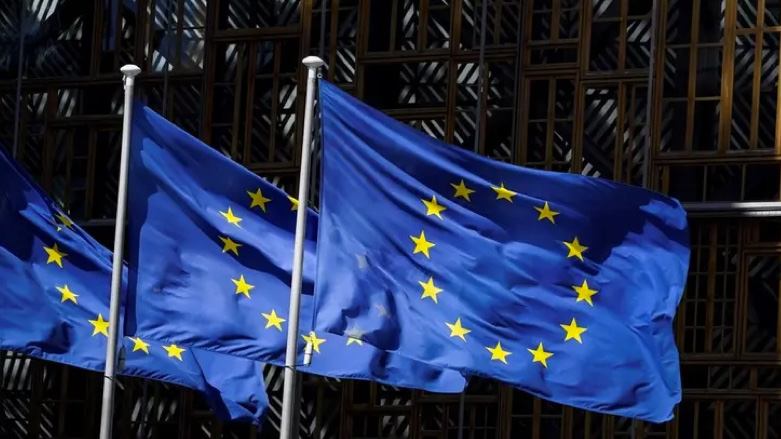EU does not have any grand strategy on Kurdish issue: book author
"In addition to being a soft, humanitarian actor, the EU has also been rational and calculative in dealing with the Kurdish issue."

ERBIL (Kurdistan 24) – A new book written by Dr. Zana Kurda focuses on Kurdish policy of the European Union as part of a book series of the United Nations University Series on Regionalism.
Book Release: The European Union and the Kurdish Issue @eu_eeas @KRG_DFR @EUinIraq @EUDelegationTur @UNUCRIS @JeanineHennis @UNIraq @Brussels_School pic.twitter.com/xqsCuA3m1B
— Zana Kurda (@ZanaKurda) September 1, 2022
In his new book, he argues that the EU does not have any grand, overarching strategy on the greater Kurdish issue. "In addition to being a soft, humanitarian actor, the EU has also been rational and calculative in dealing with the Kurdish issue," he said.
Kurda has been directly involved in EU-Kurdish affairs since 2009. Moreover, he has a master in European Studies (University of Twente, the Netherlands), and a PhD in Political Science (Free University of Brussels).
“As someone who has been involved, both professionally and academically, with Kurdish and EU affairs for almost 15 years, I noticed there were a lot of questions regarding the European Union’s approach to the greater Kurdish issue, even for an insider like myself,” he told Kurdistan 24.

“As the literature on this particular subject is very limited, I could not always find answers to those questions in the literature,” he added. “That gave the genesis to my doctoral thesis which I started in 2016 and successfully concluded in 2021.”
“My doctoral thesis was a comprehensive academic assessment of how the European Union, as an actor, has performed in the Kurdish issues in Turkey, Iran, Iraq and Syria. The aim here was to be exhaustive which means that in case the EU is not considered an active actor in the Kurdish issue (such as the case in Iran or Syria) to then explain why? And how?”
After Kurda finished his doctoral study, the United Nations University proposed to publish his PhD thesis as an edition of their Series books on Regionalism.
“This book provides new insights into how the European Union has been engaged-or not engaged in some case- in the Kurdish issues in the four countries. The analysis is quite broad and focuses, among others, on identifying the collective interests of the EU member states vis-à-vis the Kurds and by examining whether and how these issues are represented collectively by the European Union?”
Zana Kurda underlines that the EU “does not have any grand, overarching strategy on the greater Kurdish issue. Instead, its approach to the Kurdish issue is shaped within its existing, or non-existing, bilateral relationships with those four states.”
Read More: EU says ‘unilateral steps’ on holding Kurdistan referendum must be avoided
“This has led to the EU addressing the Kurdish issue differently in each country. It must be said, the EU operates within a dynamic by which on the one hand it has to preserve its internal coherence as a platform for representing the collective needs while, on the other hand, the EU is expected to be a forceful (diplomatic) actor,” he added.
Moreover, he said the EU has to also consider the level of opposition it meets in interacting with a Kurdish entity in a country or in simply addressing the Kurdish issue, “as some countries (e.g. Turkey) do not appreciate, to put it mildly, any EU intervention in those regards.”
The European Union in June 2017 also discouraged the Kurdistan Region from holding an independence referendum on Sep. 25, 2017, which disappointed Kurds.
“Following the referendum and with the escalation of the conflict between Baghdad and Erbil, the EU opted for a ‘wait-and-see’ approach, which caused disappointment on the Kurdish part,” Kurda said.
“It was only after diplomatic interventions by France, and later Germany, aimed at de-confliction, that the EU broke silence on this issue and expressed support for the efforts of its two most powerful members.”
Read More: Macron expresses delight with new KRG to President Nechirvan Barzani
“Overall, had it not been for the personal efforts by French President Emanuel Macron, and the skillful diplomatic maneuvers by the KRI President Nechirvan Barzani, that conflict would have probably taken an irreversible direction,” he concluded.